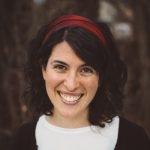 Second Chances: Life After Misdeed, Mistake, & Misfortune
Second Chances: Life After Misdeed, Mistake, & Misfortune
Rabbi Hannah Kapnik Ashar
When we make mistakes, or change our perspective on something previously profoundly important to us, how do we come back to knowing and trusting ourselves? What are some of the mechanisms for erasing or integrating these deviations in our concept of ourselves? We will explore several models to clear the way for second chances, including: the leper’s ritual for return from exile; the legal process to release vows; the confession element of repentance on Yom Kippur; and the creation of the second set of tablets of the covenant, as a model of rebuilding after brokenness. What does it take for us to believe we can start again?
 Jews, Nationalism, and Jewish Nationalism
Jews, Nationalism, and Jewish Nationalism
Professor Jonathan Marc Gribetz
In this shiur, we will think together about what Jews were, what they are, and what they ought to be. We will ask particularly about whether they have seen themselves as a nation of their own, about their relationship to the Land of Israel or Palestine, and about how they relate to their neighbors.
 Exile, Language, and Belonging
Exile, Language, and Belonging
Dr. Evan Parks
From the expulsion out of the garden of Eden, to the shattered Kabbalistic cosmology of “the breaking of the vessels,” to millennia of persecution and life in the diaspora, exile is a central category for Jewish theology and history. Yet equally central to Judaism is the notion of unbroken tradition and national belonging. This class explores the creativity that erupts from the tension between exile and belonging, inheritance and adaptivity, Jewish and gentile languages, with a particular focus on modern German-Jewish writings. In what ways does the Jewish experience resonate as universal and in what ways is it untranslatable? What problems and opportunities emerge from the association of Jews and exilic identity? Is language an incomplete, exilic experience, or does it offer a kind of home?